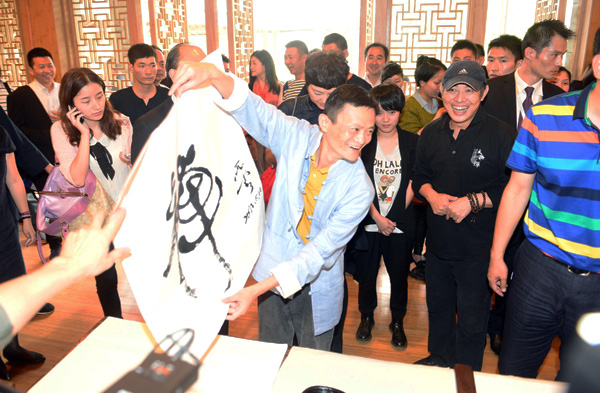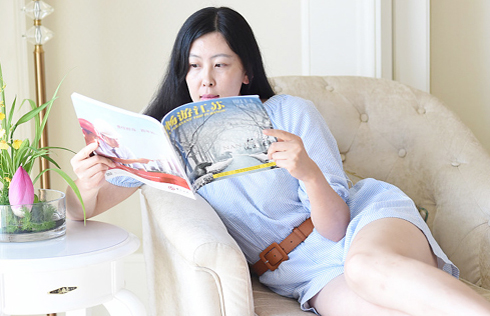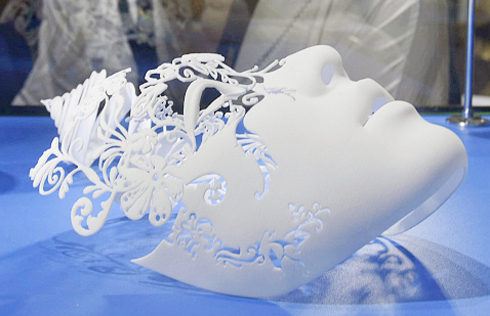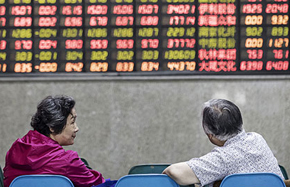Kung fu market's future in the balance
 |
|
Jack Ma (center), founder of Alibaba Group, holds a big Chinese character "zen" at the launch of Taiji Zen International Culture Co Ltd. Taiji Zen was jointly founded by Ma and famous kung fu actor Jet Li. [Photo by Yang Gang/For China Daily] |
After a recent online video of an MMA, or mixed martial arts, fighter taking down a tai chi master within 13 seconds went viral, netizens engaged in a fierce discussion on whether tai chi could be effective in combat at all and if it would survive more popular modern martial art forms such as kung fu.
"I will open arms to any tai chi master who dares to challenge me," yelled the MMA champion Xu Xiaodong after his victory. His rant added fuel to online fire of tai chi's critics who believe MMA, boxing, kung fu and muay thai are far ahead as combat sports.
But some experts say that is just one way of looking at the issue. "Tai chi has many varieties and what people are practising nowadays is an exercise to improve mental health," said Liu Haoming, owner of San Feng Tai Chi Club, a Beijing-based school.
Jack Ma, founder of e-commerce giant Alibaba Group and one of the richest persons in China, backs tai chi. "It is not for combat, but MMA is. For combat, MMA indeed is faster and more efficient, but tai chi is not only about skills, it's also about its inherent philosophy."
In the face of mounting competition from alternative mind-body disciplines, tai chi is passing through what can be called both the best age and the worst phase, said Liu.
"With the country backing traditional martial arts, tai chi has the potential to shine. Also, more foreigners have been visiting Beijing since 2008 to learn tai chi, which helps popularize the gem of our culture around the world."
Liu said he has been teaching tai chi to foreigners since 2008, and many of his students are serious about mastering it as they are aware it can calm their mind as well as provide a good workout.
"However, tai chi requires some exclusive time and an open space with clean air. Urban people usually don't have much patience or time to practise tai chi."
Yet, some martial art masters believe tai chi, being a window on Chinese culture, will have a bright future ahead.
"I believe not only China but the world will gradually appreciate the beauty of tai chi," said Zhang Yujun, founder of Fenghuang Taiji Academy, a non-profit tai chi school. "Tai chi teachers will have a bigger market as the martial art can help urban workers to relax."



















